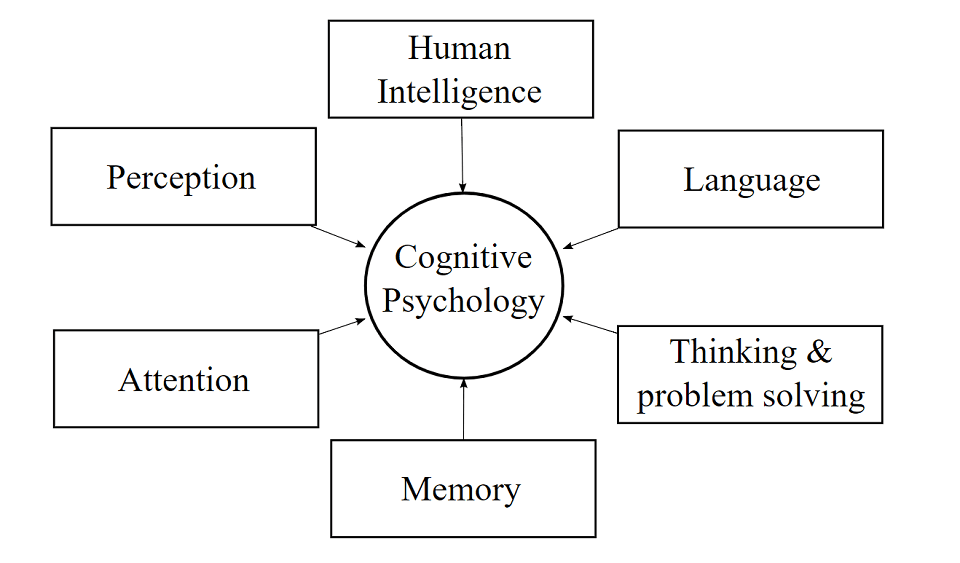For some people blogging is just a hobby. Others blog to earn money.
And there are those who see blogging as a powerful content marketing tool which they use to expand their audience and turn their website visitors into loyal customers.
If blogging plays a significant role in your professional life, you need to find different ways of improving your blog content and making it impeccable.
Cognitive psychology is one of the areas of study which can help you improve your blog content. Once you get to know it a bit better, it’s more powerful than you may think.
If you’re curious to learn exactly what cognitive psychology is and how to use it in blogging, just keep reading.
What is Cognitive Psychology?
To learn how to use cognitive psychology for improving your blogging skills, you first need to understand what it actually is.
The American Psychological Association defines cognitive psychology as:
The branch of psychology that explores the operation of mental processes related to perceiving, attending, thinking, language, and memory, mainly through inferences from behavior.
In other words, it’s a field of study dealing with our inner mental processes. This area of study can help us understand what’s happening in our minds and why we think and feel a certain way.
So, how can we use this knowledge to make our blog posts better, and our readers more satisfied?
Let’s take a look.
Cognitive Fluency
As we’ve covered above, cognitive psychology deals with the way we perceive things and what kind of an understanding of things we develop.
Sometimes we find it hard to understand some information, while other times it feels super easy. This is what cognitive fluency is all about.
Gordon O’Neill, a psychologist, and writer at Trust My Paper defines it as:
The ease with which we process information in order to understand what they are or what they mean.
Cognitive fluency and blogging are closely related in terms of:
- how you present certain information in your blog
- how you structure your blog
- which colors you use
- which fonts you use
Cognitive psychology is based on the following principle:
If the information is presented in a simple, easy-to-read, and easy-to-understand manner, we are more likely to believe the information is truthful and correct, and vice versa.
Here’s some practical advice on how to make people like your blog more, trust it, and become your regular readers:
- use fonts that are easy to read
- create a clear structure
- use words familiar to the target audience
- make your posts fluent
By using the laws of cognitive psychology and relying on cognitive fluency, you’re making your blog posts more relevant, trustworthy, and effective.
Reasoning and Persuasion
If the purpose of your blog is to sell something or get people to perform certain actions, you can use cognitive psychology to learn more about persuasion and reasoning.
Let’s put it simply:
- people need a reason to perform a certain action
- they need a motive and a trigger
- if they can justify their own actions, they’ll have no reason not to perform them
This means that you need to write content which:
- is motivating
- contains strong, clear messages
- has a killer CTA (call to action)
Explain to them why they need to do what you want them to do, and you’ve got them.
Attention
When a person is reading your blog, what do you think happens with their attention?
Is it equally strong at the beginning, in the middle, and towards the end of reading the post?
In cognitive psychology, the attention span is defined as:
The length of time that someone can keep their thoughts and interest fixed on something.
What does this mean?
At a certain point of reading your blog, your readers might zone out, lose focus, and miss out on some important information.
You can apply the principles of cognitive psychology in the following way:
- put the most important information at the beginning or at the end of the article
- don’t overuse long sentences and endless paragraphs
- try inserting interesting punch lines and visuals such as images, videos, and infographics in places you believe the attention span will decrease
Be wise and use tricks to shake your readers up, which will help you avoid them dozing off before you can convert them.
Final Thoughts
As much as it might sound silly or a little bit over the top to use cognitive psychology for blogging, you can see how simple it actually is.
It’s about being prepared and understanding how your audience is going to digest the presented information.
Use the advice given above to improve your blog content. It will help you retain your regular readers and gain new ones, in no time.
Feature Image Credit: CC 0; Public Domain. Feature image sourced from Wikimedia Commons.
Disclaimer: The views and opinions stated in this post are that of the author, and Return On Now may or may not agree with any or all of the commentary.
Latest posts by Melanie Sovann (see all)
- How Cognitive Psychology Can Improve Blog Content - June 4, 2019





